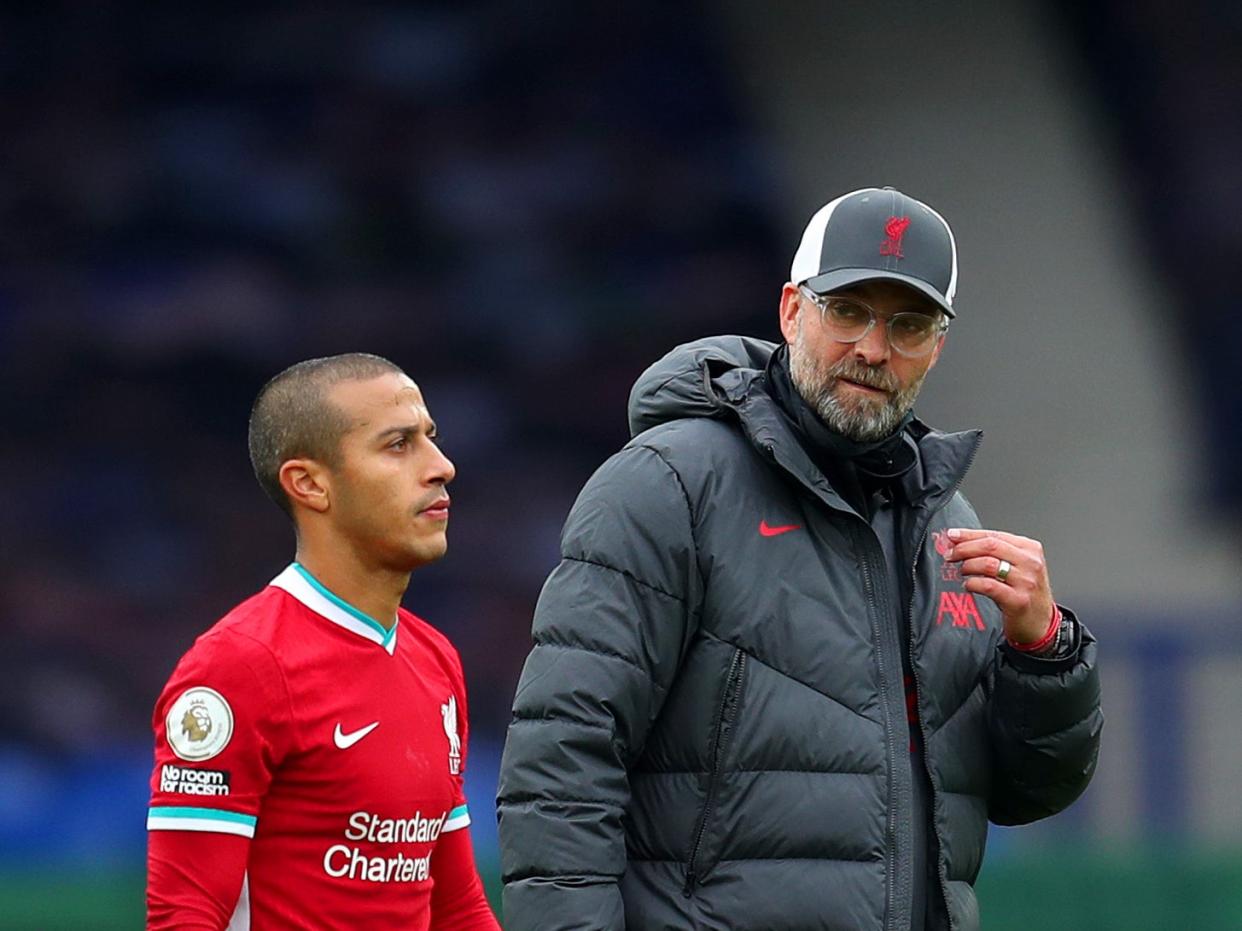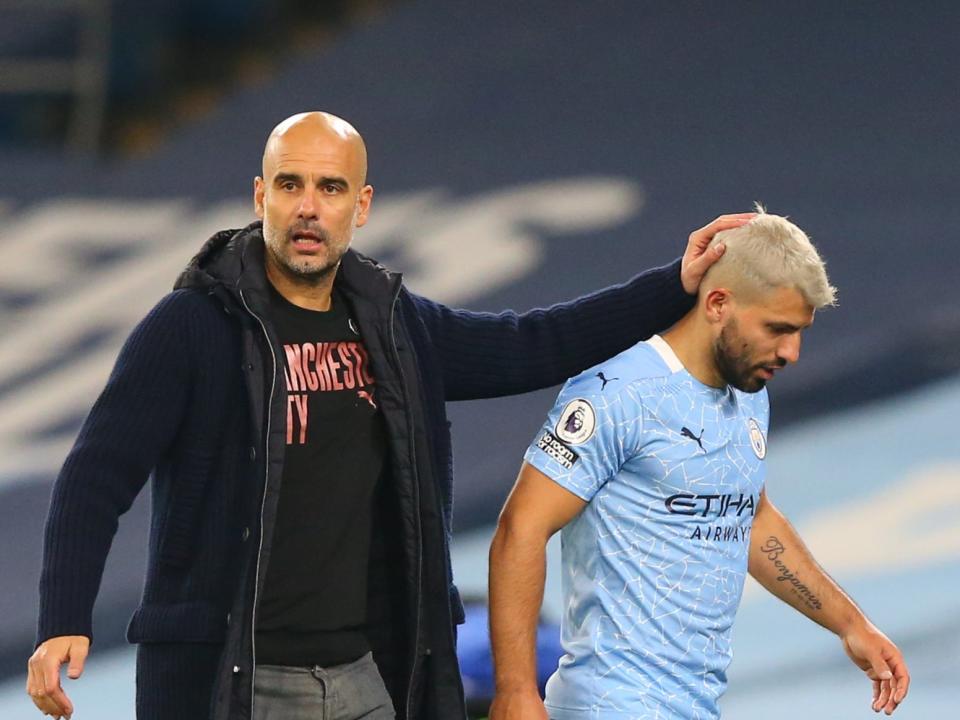Liverpool and Man City met with uncertainty to leave Premier League title race wide open

The wonder, as Pep Guardiola rolled his eyes, was “what next?”
Manchester City had just claimed a necessarily convincing 3-1 win over FC Porto, that came amid some controversy on the sideline, only to be informed of an injury to Fernandinho. The news came through the next day that the Brazilian will be out for at least four weeks.
It was thereby a combination of assurance and uncertainty all in the same night. City’s rivals at Manchester United, Liverpool, Tottenham Hotspur and Chelsea have experienced similar swings in the same halves, let alone games or weeks.
As the most obvious example, Ole Gunnar Solskjaer has so quickly gone from one of his club’s worst ever defeats to perhaps his greatest team performance. The United manager will rightly feel a sense of vindication after such a victory over Paris Saint-Germain and the extent of the criticism - not least in these pages - but maybe shouldn’t get too ahead of himself.
The lesson of the 2020-21 season so far has been that no impression is lasting, because perceptions are drastically reset on a weekly basis. What was true at the end of the last match may be completely wrong at the end of the next.

If the Premier League is a rare form of fresh entertainment amid Covid restrictions, it has become one of those sitcoms where the events of any single episode are almost irrelevant to the one that follows.
What next, indeed.
It’s just that it may add up to a grander arc, and maybe a surprise ending.
This has undeniably been an abnormal season, so far, to go with the abnormal circumstances.
The wild results have had an inevitable effect on the table, ensuring it is already more fluid than usual.
The reality of the last decade has been that, by this five-match point, the top four starts to harden and take a familiar shape. The average has been three of the ‘big six’ already filling it by now, and three of the clubs in the Champions League places still there by the end.
This exact point last season actually saw it very close to its final form, with Liverpool clear on top, City in second and Leicester City in fifth.

There’s one stat that actually sums up how the usual state of affairs has been shaken up. This is the first time since 2006-07 that a club from outside the big six has led the table after five games.
That was Harry Redknapp’s Portsmouth, who kept five clean sheets in five games, and won 13 points out of them.
While Leicester ended up being the great outlier in 2016, the stat just emphasises how quickly “reality” usually imposes itself.
The suggestion of this campaign so far - to paraphrase Irvine Welsh’s ‘Filth’ - is that the same rules don’t apply.
That isn’t to say it will be another “Leicester season”, but the ingredients are there for one. The reasons for that have been much discussed but what is now more interesting is what the effects might be, and how long-lasting they will be.

It does feel, at the very least, we can forget what we “know” about the title race. There are currently too many variables.
What we have known over the past few years is that finances generally dictate the table, bringing together the finest playing and managerial talent, so they apply the most sophisticated tactics to ensure the limits of performance and points returns have been pushed.
It has been football to the maximum.
The great issue with this season is that the maximum just isn’t possible.
The rate of points dropped already indicates that the threshold for the title is going to be much lower than the 95-plus figures of the last few seasons. It may even be around 80.
Much of this is down to the calendar, which has a multiplier effect. There’s first of all the manner that it will affect the basic fitness of sides. Teams won’t be at 100 per cent for anywhere near as much, and suffer many more injuries.
Teams will lose a lot of key players for a lot of time. That can already be seen with Fernandinho and, most of all, Virgil van Dijk.
It could be a season decided by injuries in that regard. Sides will be denied crucial cogs.
There’s then the way those cogs function.
It is why the sophistication of tactics may not be so relevant, because they won’t be as well applied.
Squads won’t have as much time to train, managers won’t have as much time to drill their players. Look at the way these next three weeks see the sides in Europe jump from continental fixture to league game.
It will be about teams trying to keep close to their level, rather than maintain it. Games like Aston Villa 7-2 Liverpool and City 2-5 Leicester meanwhile show how surprisingly fine the line is between their exquisitely good football and exceptionally sloppy play.
The most sophisticated approaches require the most application.
More generally, the cohesion required for high lines and high-intensity pressing may not be as possible this season.
In such circumstances, it is entirely possible more dismissed approaches have more of an effect. The wider chaos of the Premier League may mean that any side that can apply a bit of solidity - like Jose Mourinho’s Spurs, Solskjaer’s United or Carlo Ancelotti’s Everton - can go much higher.
Any kind of consistency will be hugely influential.
This is why City’s acutely competent win over Arsenal felt a key moment. This is why Fernandinho’s injury now feels even more important. It’s another little twist, another road bump for the usual realities.
It does feel a season where it would be ill-advised to write anyone or anything off. The issue is that so much is erased so quickly.
It’s hard to know what next.


